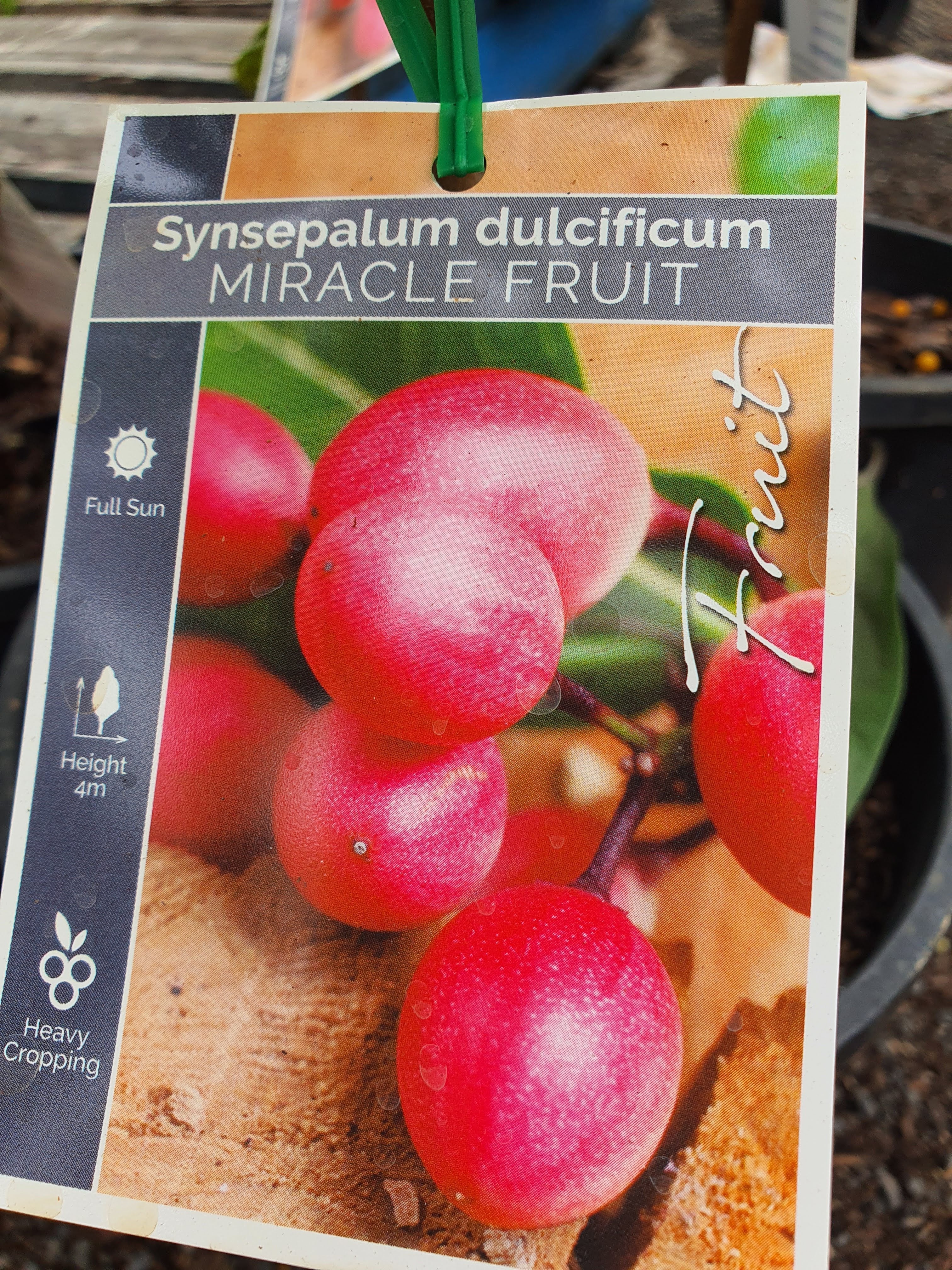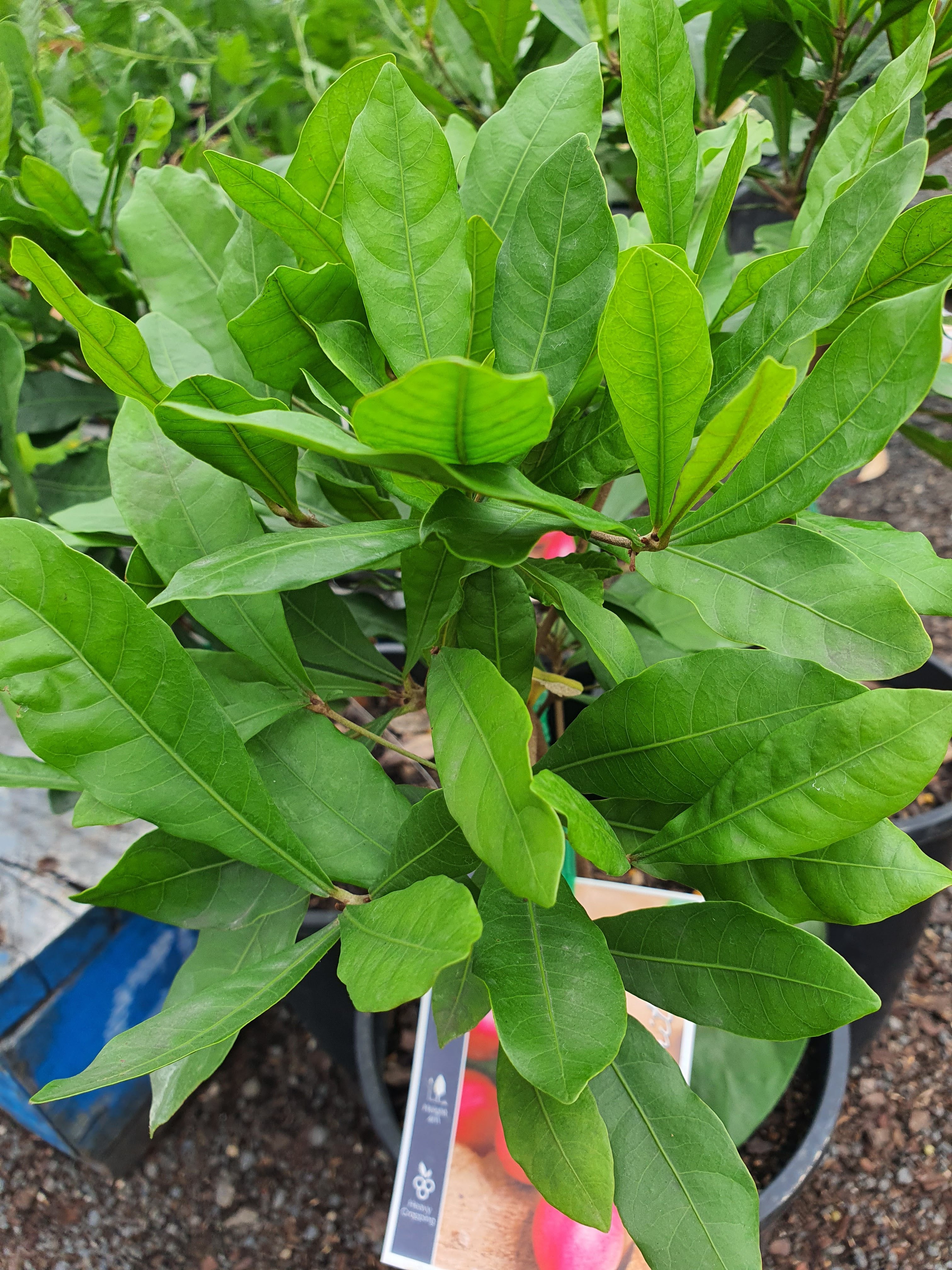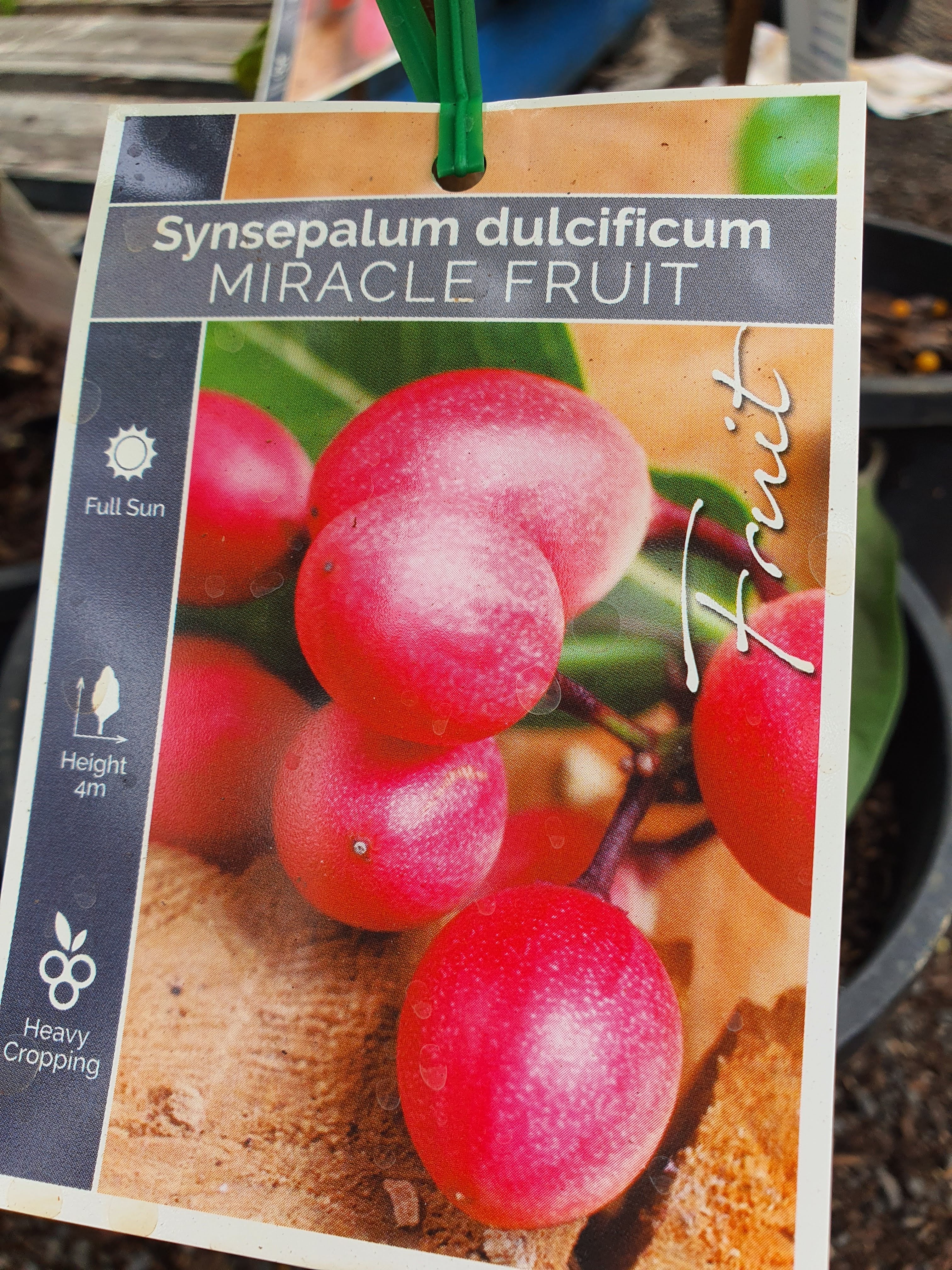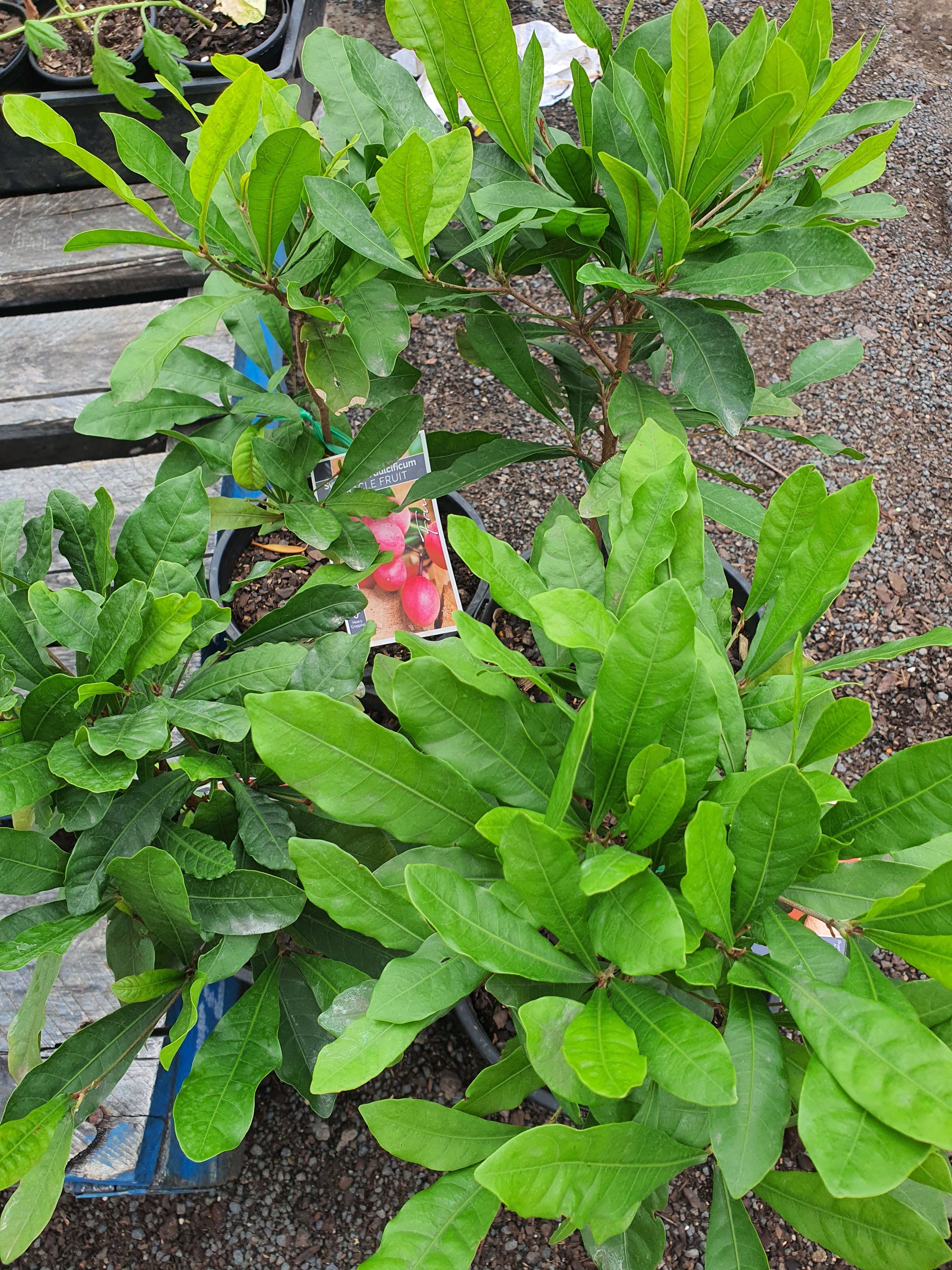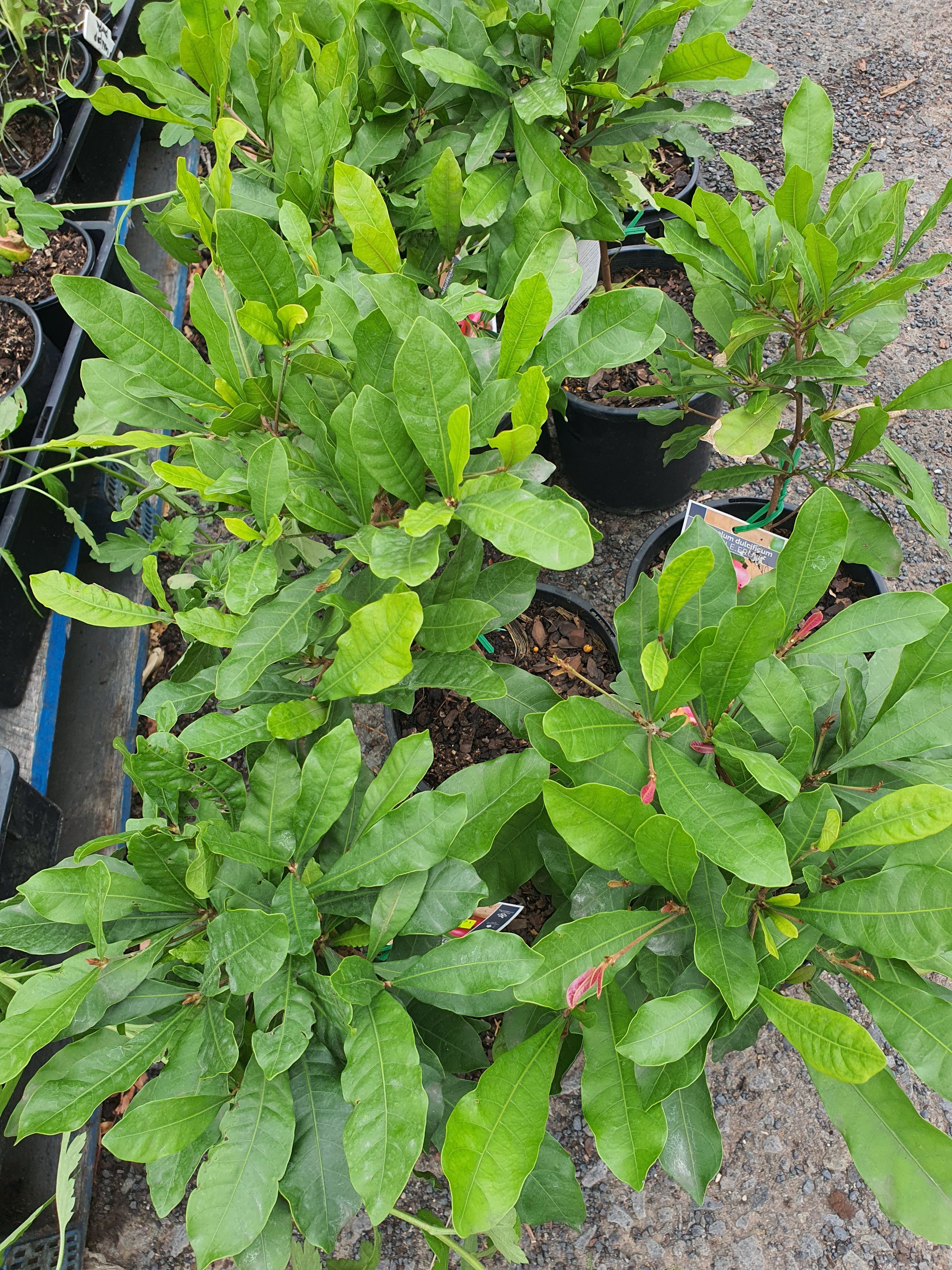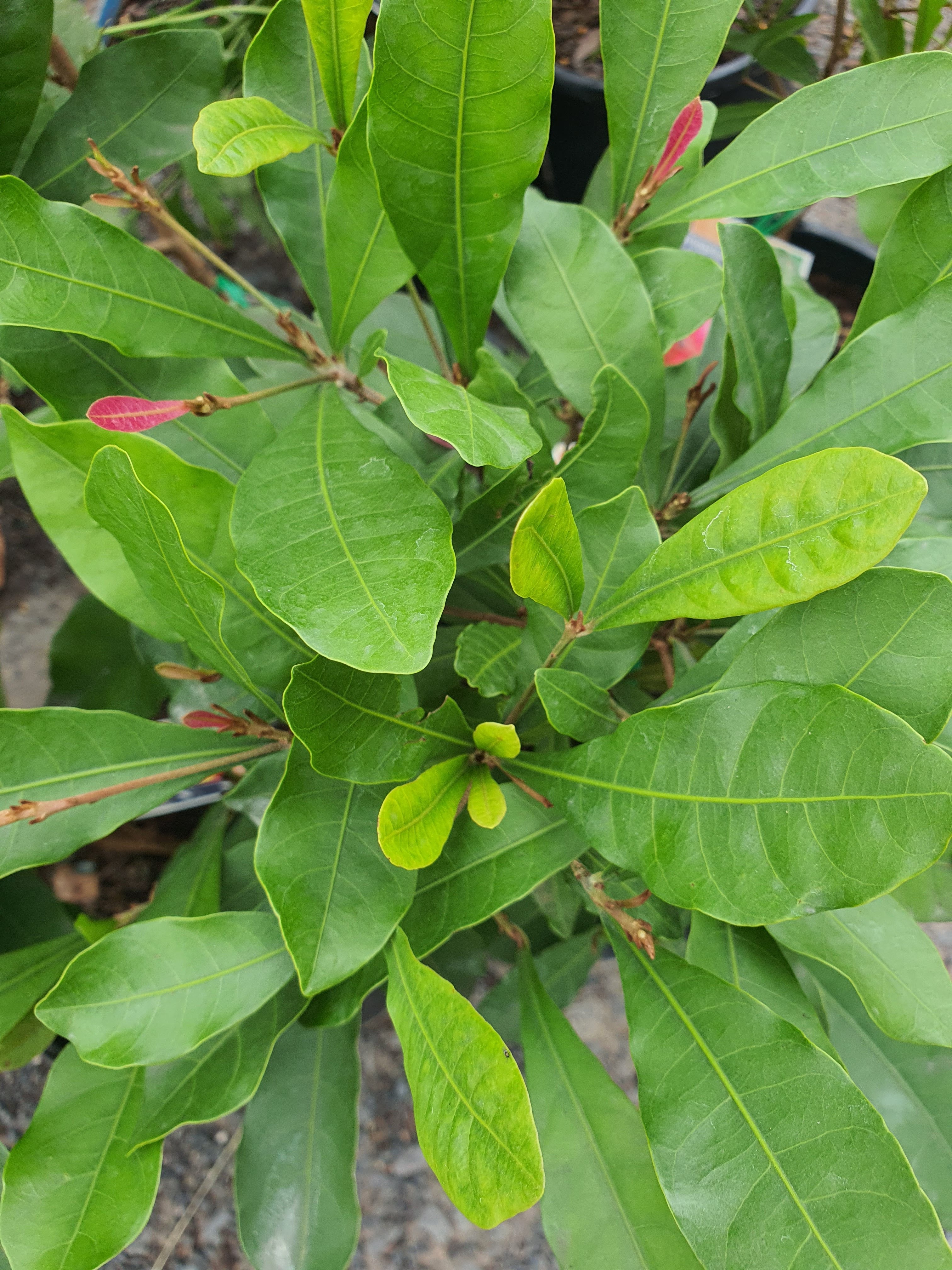Description
Miracle Fruit Plant for Small Garden
The Miracle Fruit plant (Synsepalum dulcificum) is a tropical shrub known for its unique ability to make sour foods taste sweet. The fruit contains a glycoprotein called miraculin, which temporarily alters the taste, making sour and acidic foods (like lemons or vinegar) taste sweet when consumed after eating the fruit. This remarkable property has made it famous among food enthusiasts and has a great potential applications in the food and health industry.
The plant produces small, red berries that are typically about 1 to 3 inches long. These berries are edible and sweet, although they are not typically consumed raw in large quantities due to their strong flavour. Miracle fruit plants are grown mainly for the fruit's novelty and health benefits.
Growing Specifications:
- Height: Can grow up to 5-8 feet tall when fully mature, but can be kept smaller with pruning.
- Spread: Typically 2 to 4 feet wide.
- Bloom Time: Flowers bloom in late spring to early summer, followed by fruit development in the fall or winter.
- Flower Color: Small, white to pale yellow flowers.
- Fruit Color: Bright red when ripe.
- Type: Evergreen shrub, typically grown in containers in non-tropical climates.
Suitable Gardens:
- Tropical and Subtropical Gardens: Miracle fruit thrives in medium hot, humid climates with plenty of sunlight and warmth.
- Indoor/Greenhouse Gardens: In non-tropical regions, miracle fruit can be successfully grown in pots indoors or in a greenhouse.
- Exotic Fruit Gardens: It’s a great choice for gardeners looking to grow unique or exotic fruits.
- Edible Gardens: This plant is ideal for those interested in growing edible, interesting fruits with health benefits.
Features and Benefits:
- Taste Altering Effect: The most popular feature of the miracle fruit is its ability to make sour and acidic foods taste sweet, thanks to the miraculin protein.
- Health Benefits: Miracle fruit may be useful for people undergoing chemotherapy or other treatments that alter taste, as it can help make foods more palatable.
- Exotic Appeal: Growing a miracle fruit plant adds an interesting and great conversation-starting element to your garden.
- Low-Calorie Alternative: Miracle fruit can provide a natural way to sweeten sour foods without adding sugar or artificial sweeteners.
- Edible Berries: The berries themselves are mildly sweet and can be eaten raw.
Growing Requirements:
- Soil: Miracle fruit plants prefer acidic, well-drained soil.
- Light: They require bright, indirect light. While they need warmth, direct sunlight may scorch the leaves, especially in hot climates.
- Water: Keep the soil moist, but not waterlogged. Miracle fruit plants are very sensitive to drought, but they don’t like sitting in standing water.
- Temperature: Ideal temperatures hot weather condition.
- Humidity: These plants thrive in high humidity, so they may need additional moisture in dry climates, especially when grown indoors.
- Fertilization: Use a balanced, slow-release fertilizer specifically for acid-loving plants to maintain regular growth and fruit production.
- Pruning: Prune to maintain the plant's shape and remove any dead or damaged branches and leaves. Regular pruning can also encourage better fruit production.
Why Choose a Miracle Fruit Plant?
- Unique and Fun to Grow: The ability to alter taste perception is a fun, interesting aspect for gardeners and food enthusiasts. It's a good novelty fruit to grow in any garden.
- Health Aid: For those with health conditions that affect taste (like chemotherapy patients), miracle fruit can provide a natural remedy by helping make sour foods taste sweet and more palatable.
- Low-Sugar Alternative: Miracle fruit provides a way to naturally sweeten foods without resorting to sugar or artificial sweeteners.
- Edible & Sustainable: If you’re looking to grow more edible plants in your garden, miracle fruit offers not only a unique taste experience but also an enjoyable, natural snack.

